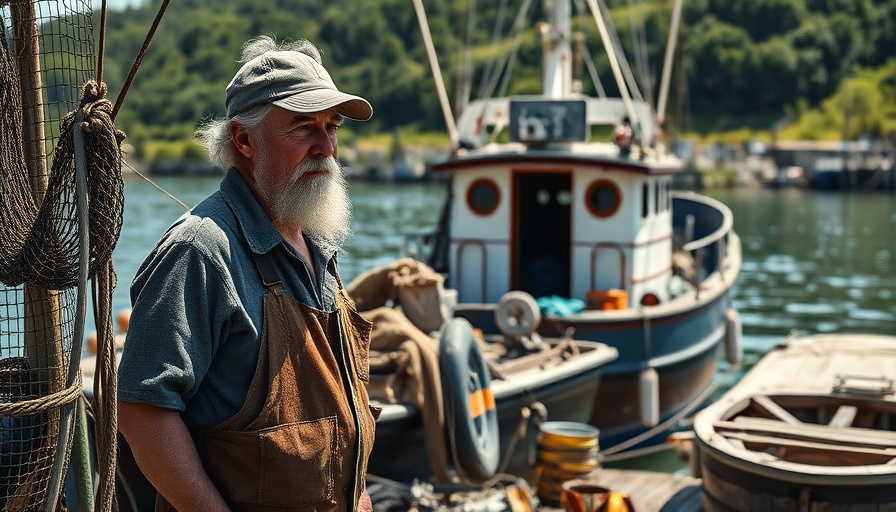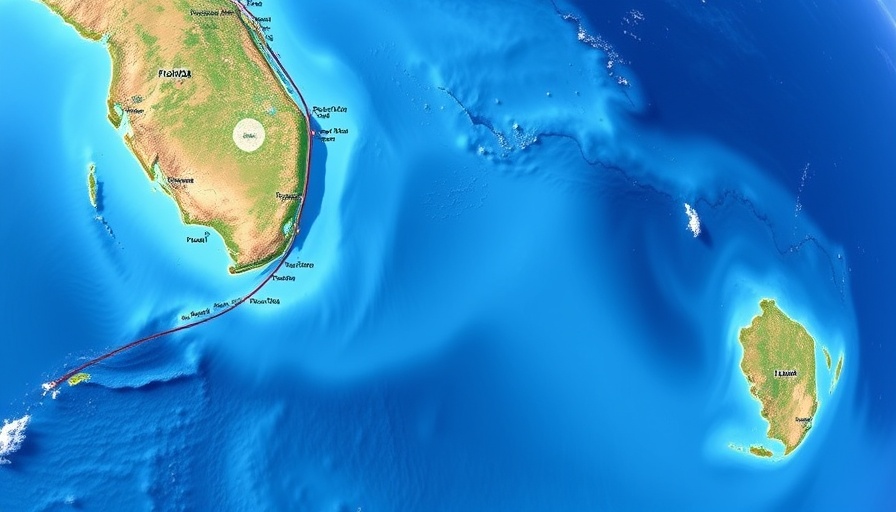
The Evolution of Commercial Fishing on the Alabama Coast
For over a century, Alabama's Gulf Coast has played host to generations of fishermen, but few embody the rich tradition of this trade like Captain David Stiller. With roots tracing back to his grandfather in the 1950s, Stiller has carried forth the legacy of commercial fishing with pride, especially through his new venture, Apex Shark Fishing Charters.
A Commitment to Conservation and Research
Stiller isn't just casting lines into the ocean; he's also casting a spotlight on the need for shark conservation. Sharks play a pivotal role as apex predators in marine ecosystems. In a world where these creatures face threats from overfishing and habitat loss, Stiller’s work addresses both the commercial and ecological facets of shark populations. Through partnerships with organizations like the Gulf Coast Research Lab and NOAA, he ensures that the fishing practices not only address market demands but also contribute vital data for research aimed at preserving shark populations.
Understanding Sharks: Data Collection and Impacts
Fishing isn’t merely a means to an end for Stiller's crew; it’s about practical science. Each trip doesn’t just yield hundreds of sharks for market; it also serves as an opportunity to collect critical data regarding sharks' growth, reproductive habits, and overall health. Their involvement in the Sandbar Research Program enables the team to analyze important metrics such as pup rates, maturation ages, and dietary habits of these fascinating creatures.
Debunking Myths: Fishermen as Conservationists
For many, the image of commercial fishermen conjures up concerns about environmental degradation; however, Stiller and his team are doing their part to reshape this narrative. Engaging in sustainable practices and adhering strictly to regulations, they emphasize the importance of conserving the very populations they fish. Stiller's perspective reflects a common misconception: that commercial fishing is inherently at odds with conservation efforts. In reality, many in the industry are committed to responsible fishing and collaborative conservation efforts.
Risk Factors and Challenges in the Gulf
Despite their commitment to sustainable practices, the crew often faces pushback from animal rights activists and environmental groups. This tension underscores an ongoing dialogue about the role of commercial fishing in modern conservation. While Stiller emphasizes the regulated nature of their operations and the scientific contributions they make, the balance between commercial interests and environmental stewardship remains a contentious issue in coastal communities.
Future Trends: The Role of Technology in Fisheries
As technology evolves, so does fishing. Drones and sophisticated tracking systems are revolutionizing how fishermen operate. In conjunction with their regulated activities, such advancements not only enhance operational efficiency but also strengthen data collection methods. These technologies are promising tools in the ongoing quest for sustainable fishing solutions while allowing fishermen to adhere to best practices.
Make a Difference: Embrace Sustainable Choices
Whether you're a seafood lover or just someone visiting Alabama’s beautiful Gulf Coast, understanding the impact of your choices is vital. Supporting local, responsible fisheries like Apex Shark Fishing Charters means you're contributing to the balance of marine ecosystems. By making informed decisions about the seafood you consume, you can play a part in conservation.
Join the conversation on sustainable practices in fishing. Support local fishermen, spread the word about shark conservation, and make choices that positively impact our oceans. The more we learn and advocate for responsible consumption, the healthier our marine ecosystems can be.
 Add Row
Add Row  Add
Add 




 Add Row
Add Row  Add
Add 

Write A Comment